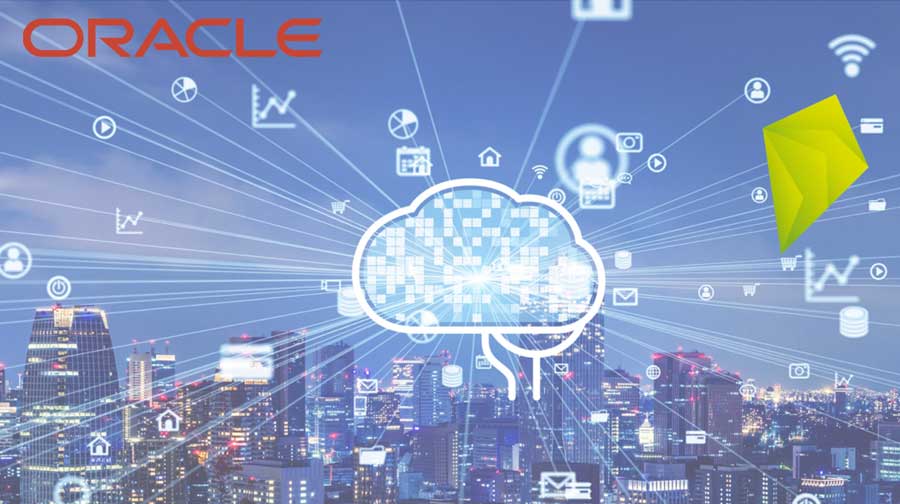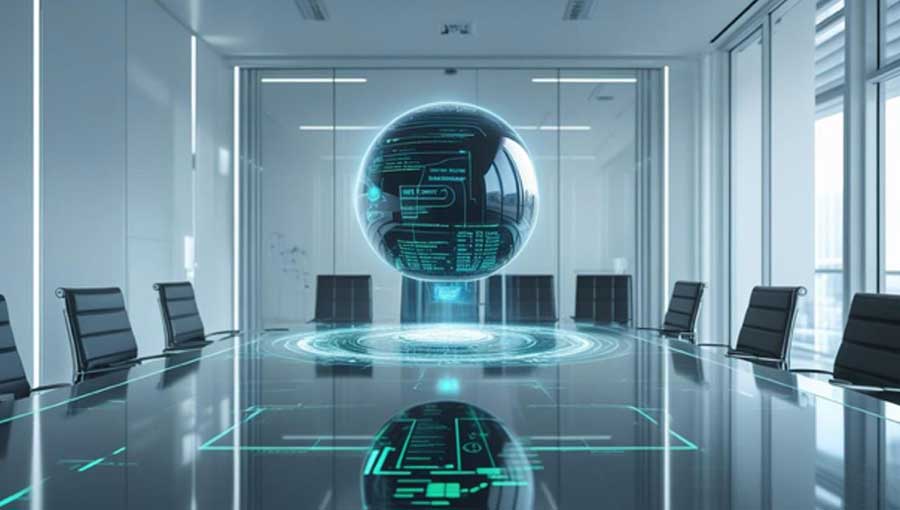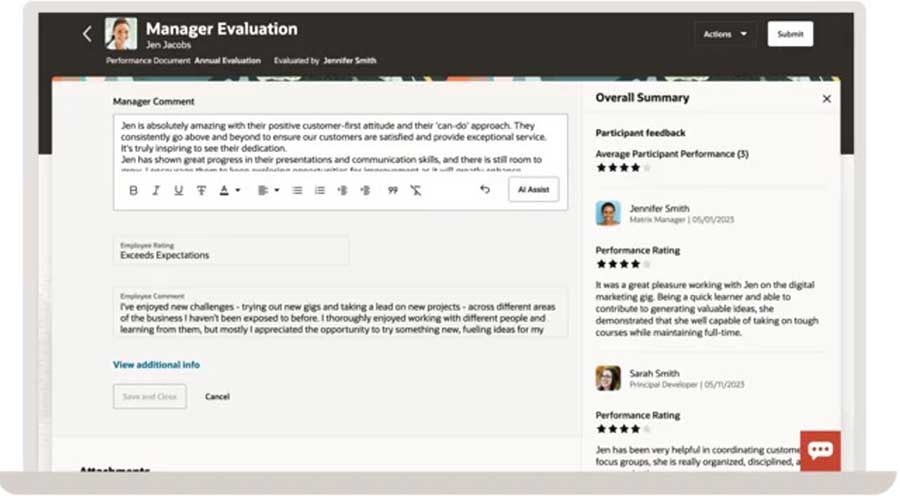Oracle HCM and AI: How AI Is Redefining the Workplace and What Is the Impact on Employees for the Future

Let’s cut to the chase. The digital transformation we’ve been hearing about for years? It’s here. The days of your HR team drowning in admin, slogging through manual onboarding, or struggling to make sense of reams of employee data, are (happily) numbered. Oracle HCM (Human Capital Management) Cloud, now turbocharged by AI, is rewriting the playbook and make no mistake, employees are smack in the middle of this revolution.
But what’s really changing? And what do real people; employees, leaders and even the C-level crowd, stand to win (or lose) as AI reshapes the 9-to-5 experience? Let’s step through this brave new world.
From Paper to Predictive: The New HR DNA
Remember when HR was all about forms, phone calls and feet on the ground? Not anymore. AI is redefining the way HR work. It empowers HR teams, eliminating the tedious administrative overhead, unlocking vital workforce insights and placing HR at the centre of business growth.
For employees the new experience will be one of seamless support easing employees through policies and forms alike with automation enabling business insights through predictive analytics and crafted, personalised careers and growth.
Automation everywhere: Mundane tasks like timesheets, leave requests and benefits management? AI Agents will have it covered.
Data-driven decisions: Forget gut feelings. AI sifts through oceans of data to spot trends, flag risks, and predicting and recommending actions before issues even surface.

Personalisation at scale: No more one-size-fits-all. Learning, development and even career paths are tailored using AI-driven insights.
The upshot? Employees don’t just get faster service, they get a workplace that anticipates their needs, nudges them toward growth and makes their daily grind smoother.
The AI-Powered Employee Journey
Let’s break down the employee lifecycle and see how Oracle’s AI weaves its magic:
1. Recruitment & Onboarding
- Oracle Recruiting Cloud uses AI to match candidates to job requisitions by analysing resumes, skills and past hiring data. Using your model, AI will identify the best candidates that meet your needs.
- Digital Assistants greet new hires, answering questions 24/7, guiding them through processes to complete onboarding tasks
- Oracles AI includes predictive models that assess candidate fit and forecasts retention risk, helping reduce turnover by identifying high-potential hires early
2. Learning & Development
- Personalized learning paths? You bet. Oracle Learning Cloud recommends courses based on skills gaps and business needs.
- Microlearning is delivered just-in-time, tailored to individual preferences.
- The system maps skills, roles and employee goals to suggest potential career paths and required learning—taking the guesswork out of career progression
3. Performance Management
- Oracle Performance Management provides real-time feedback loops. AI flags high performers and struggling employees alike - no more annual review surprises.
- Sentiment analysis gauges morale and engagement, so leaders can act before problems fester.

4. Wellbeing & Retention
- AI spots patterns that hint at burnout or disengagement (e.g. absenteeism, performance drop-offs), suggesting interventions.
- Employees receive nudges for wellness programs, flexible work, or even upskilling opportunities.
5. Offboarding & Alumni Engagement
- Exit interviews analysed by AI for root causes of attrition feeds continuous improvement and improves retention.
- Automated alumni networks maintain talent pools for future opportunities.
The Upshot: What’s in It for Employees?
Alright, so the techs cool. But what’s the real-world impact on employees?
- Less drudgery, more impact: automation frees up time for meaningful, creative work.
- Faster HR: automation frees up time for meaningful, creative work.
- Personal and professional growth: Employees see clearer paths to follow and leverage targeted learning advance (not rely on who you know).
- Continuous feedback: No more wondering how you’re doing or waiting for annual reviews for the verdict. Feedback is freely available and accessible from the people you need it from most.
- Wellbeing prioritised: AI can flag when someone’s at risk of burnout, prompting timely support.
But, as with any revolution, there are bumps in the road.
Challenges and Opportunities
Every revolution from the industrial to the digital comes it with risks and rewards.
The Rewards
- Efficiency gains: tedious tasks vanish, letting people focus on what matters.
- Data democratization: employees can see their own data, set goals, and track progress.
- Agility: companies can pivot faster, responding to market shifts or crises with real-time insights.
The Risks
- Change fatigue: today, our only certainty - the only constant - is change. Not everyone loves new tech, especially if it feels forced or forces new change upon us.
- Bias in, bias out: AI is only as fair as the data it’s fed—bad or biased data can reinforce old stereotypes.
- Privacy worries: employees wonder who’s watching and what’s being tracked.
- Skills gap: not everyone’s ready for an AI-first world—continuous learning is non-negotiable.
The Human Touch Still Matters
No matter how slick the software, people crave real human connection. The workplace of the future—supercharged by Oracle HCM and AI—has to find the sweet spot between digital convenience and genuine empathy.
What’s Coming Down the Line? Predictions for the Future
AI isn’t just today’s bells and whistles. It’s laying the foundation for a fundamentally different kind of work life.
Here’s what’s next:
- Hyper-personalized workdays: imagine AI adjusting your schedule, nudging you toward peak productivity, or suggesting breaks when stress spikes.
- Continuous learning as the norm: the half-life of skills is shrinking. AI will be the engine behind just-in-time learning, ensuring employees stay ahead of the curve.
- Transparent career mobility: Employees will see, in real-time, how to move up, across, even when it’s time to move out with AI as their career coach.
- AI-augmented collaboration: teams assembled dynamically based on skills, interests and even current workloads. AI will become the ultimate ma
- Ethics and trust front and centre: expect more conversations—and regulations—about how employee data is used, privacy and the boundaries of automation.
Practical Steps for Organisations
Ready to ride the wave? Here’s how to make the most of Oracle HCM and AI, how AI is redefining the workplace and what is the impact on employees for the future:
- Start with strategy: don’t just slap AI onto old processes. Rethink workflows from the ground up.
- Invest in change management: bring employees along for the ride. Communicate, listen, learn, unlearn and relearn.
- Keep humans in the loop: AI is a tool, not a replacement for empathy or judgment.
- Prioritize data quality: garbage in, garbage out. Clean data is non-negotiable.
- Measure and iterate: track key metrics—engagement, productivity, retention—and adjust as you go.
FAQs: How AI Is Redefining the Workplace and What Is the Impact on Employees for the Future
Q: Will AI take over HR jobs?
A: Not exactly. AI will automate routine tasks, but human expertise is still needed for strategy, empathy and complex problem-solving. Think of AI as a sidekick, not a replacement.
Q: How does AI reduce bias in decisions?
A: AI can help by analysing large datasets objectively, but it’s only as unbiased as the data it’s trained on. Regular audits and transparent algorithms are essential.
Q: Is employee privacy at risk with Oracle HCM and AI?
A: Data privacy is a top concern. Leading solutions like Oracle HCM offer robust security and compliance features, but organizations must remain vigilant and transparent.
Q: What skills will employees need in an AI-powered workplace?
A: Adaptability, digital literacy, emotional intelligence, and a growth mindset. Continuous learning is key—AI will handle the grunt work, but humans must focus on creativity and relationship-building.
Q: Can small or mid-sized businesses benefit, or is this just for the big players?
A: Absolutely. Oracle HCM Cloud and AI tools are increasingly accessible to businesses of all sizes. The key is scaling adoption to fit your needs and budget.
Conclusion
We’re standing at a crossroads. The Oracle HCM and AI, how AI is redefining the workplace and what is the impact on employees for the future, isn’t a question for tomorrow—it’s the challenge and opportunity of today. HR, once seen as a cost center, is rapidly transforming into a powerhouse of data-driven strategy and human-centric innovation.
The winners? Employees who are empowered, enabled and developed with genuine care. Organizations that blend cutting-edge AI with a culture of empathy and learning. The losers? Those who stick their heads in the sand, clinging to outdated processes and ignoring the seismic changes underway.
It’s time to get off the sidelines. Whether you’re an HR leader, an IT decision-maker, or an employee wondering what’s next, the message is clear: The future of work is already here, and AI is the tide lifting all boats. You need to be ready to set sail.
So, are you ready to embrace AI to redefine your workplace and transform your employees work life?? The journey starts now and Kyte can help you on this journey.
How can Kyte Help?
Is your Oracle HCM solution ready for the AI revolution? Oracle Fusion 25B introduces groundbreaking AI Agents that can transform how your organization manages human capital. But knowing where to start and how to implement these capabilities effectively requires expert guidance.
Kyte Consulting's FREE Oracle HCM AI Workshop Assessment provides you with a comprehensive evaluation of your current Oracle HCM environment and a strategic roadmap for integrating AI capabilities that deliver measurable business value.
Also look out for communications regarding an upcoming Webinar on this subject coming 19th August 2025 as part of the new AUSOUG HR Special Interest Group webinar series.
If you would like to learn more please reach out.
Authors: Richard Atkins (Richard.atkins@kyte.com.au) Kat Barnett (kat@barnetthr.com.au)